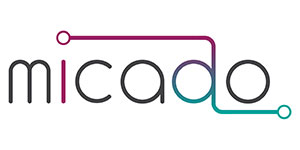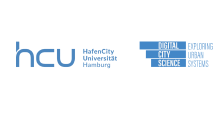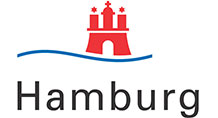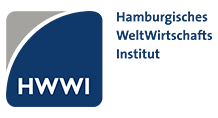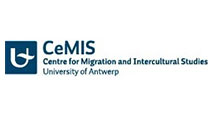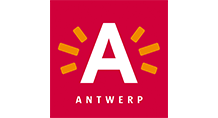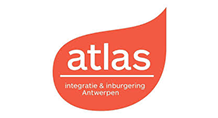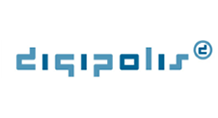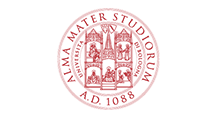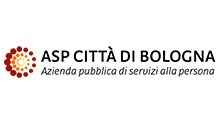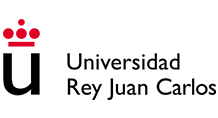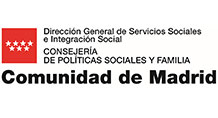HafenCity University (Germany)
HCU
The HafenCity University is a new (founded in 2006) public university that has been created following the idea of merging four separate units dealing with architecture and spatial development from three Hamburg universities. As a result, the HCU is a specialised, progressive university that represents the entire range of disciplines required for understanding and designing the urban environment. The HCU is an institution that has made its name in project activity.
Digital City Science (DCS) is a co-operation with the Massachusetts Institute of Technology’s Media Lab and is one of the several CityScience Labs around the world. The co-operation comprises joint research projects and regular scientific exchange between both institutions. It is part of the HCU, however, it has a special constitution, as it was founded in 2015 on the initiative of the Lord Mayor of Hamburg as a research unit that would focus on tackling concrete problems of the city of Hamburg. DCS has been designed as a living laboratory, which denotes a unit that monitors itself, researching on its own work while the work is happening. DCS, in its only three-and-a-half years of existence, has grown rapidly from five people to nearly thirty, and continues to grow thanks to the intensive and effective project generation. The team is comprised of persons representing a variety of professions, which allows for the unit’s flexibility, and its executive and cognitive capabilities. In the particular context of MICADO, the DCS team boasts having programmers, software developers, urban planners, and sociologists in its ranks, whose expertise includes the topics of dashboards, data collection and management, public communication, as well as other issues that are addressed by MICADO.
One of DCS’s core activities is the development of interactive digital tools for participation and expert decision-making. Crucially for the MICADO project, the Lab has substantial experience in bringing together ICT and migrant-related matters. The prime example of this was the ‘FindingPlaces – Hamburg is looking for areas for refugee housing’ project that started in May 2016, and which later garnered an URBACT Good Practice award. The FindingPlaces solution is an innovative ICT tool for finding suitable locations for refugee accommodation, while the project consisted of over 30 participatory workshops in which citizens of Hamburg and experts jointly discuss potential areas for temporary refugee accommodation and propose these to the city. FindingPlaces enabled more flexible and collaborative public administration, which meant that citizens and stakeholders could become more closely involved in running the city and contributing to decision-making.
On the city-state scale, the HafenCity University and Digital City Science have close ties to municipal agencies and institutions that generate and participate in international projects themselves, as well as facilitate such participation for others – namely the State Chancellery and the Ministry for Science and Education. Moreover, the DCS co-operates actively and has concrete ties to state and municipal bodies that are crucial for the success of MICADO.
Free and Hanseatic City of Hamburg (Germany)
FHH
The Free and Hanseatic City of Hamburg, one of the 16 states of the federation, is the second largest city in Germany with its 1.8 million inhabitants. In this sense, it is a city as well as a state. As a member of EUROCITIES, Hamburg shares its experience with European cities and regions and works actively in several forums and workshops. In general, Hamburg achieves a major part of its performance from international cooperation, using the best “dos” and trying to avoid the “don’ts”. As it is clear that all professional experience necessarily has to be adapted and to be accepted by political decision-makers, Hamburg has decided that the lead for Hamburg’s participation in this project will take on the Senate Chancellery (Mayor’s Office). This shows the importance Hamburg sees in the cross-cutting process of the Horizon2020 programme. In Hamburg currently, about 39 INTERREG and 8 Horizon 2020-projects with urban development and smart city elements are the basis for permanent improvements. Since 2016 Hamburg is a Smart-Cities-and-Communities-Lighthouse-City with the Horizon2020 project “mySMARTLife”. For MICADO, the participant Free and Hanseatic City of Hamburg consist of a consortium of public authorities comprising:
- Senate Chancellary
- Agency for Geoinformation and Surveying – LGV (Landesbetrieb Geoinformation und Vermessung).
The City of Hamburg’s Senate Chancellery is in charge to give advice to the regional government and to support Hamburg’s Ministries in implementing the Mayor’s and Senate’s policy. Additionally, to protocol and media duties, two main offices are especially working on policy implementation: The Planning Staff drafts the political guidelines and transfers the Senate’s policy into operations. It is responsible for the finance capital budgeting, the Northern German co-operation as well as for the Senate’s Commission for Urban Development. The Office for International Affairs coordinates all political activities on international and on a European level. Within this duty, twin city relations are managed as well as special international project issues. One of the striking capacities of the Senate Chancellery is the translation of general aims into concrete and pragmatic actions – in cooperation with the International Affairs Office (gaining international experience) and the Planning Staff (operationalization into Ministry- and city level).
LGV Hamburg (Landesbetrieb Geoinformation und Vermessung) is a public agency for Geoinformation and Surveying operating as a municipal enterprise under the supervision of the Ministry of Urban Development and Housing of the Free and Hanseatic City of Hamburg. LGV Hamburg is responsible for: 1. production and publication of official maps and the 3D city model, 2. keeping the official register of real estates in Hamburg as well as 3. for designing and handling the Urban Data Platform of Hamburg. LGV is Hamburg’s official representative for all administrative offices and co-operates with offices on city and regional level to establish a spatial data infrastructure (SDI). LGV also is the central coordinator for SDI in the Metropolitan Region of Hamburg (MRH) and, on a national level, central contact point in Hamburg to implement the SDI Germany (GDI-DE). Also, LGV is engaged in the implementation of INSPIRE on a European level. LGV was involved in the citywide project of implementing an open data strategy as well as technically providing the transparency portal of Hamburg.
The current Urban Platform of the City of Hamburg is a Data-Warehouse containing open and non-open data of different authorities, third parties and sensor data. It holds geospatial information to several categories, which are distributed via standardized web services (OGC) for viewing, downloading and processing of data. Each dataset is connected to a metadata catalogue web service interface, which is based on a city metadata catalogue (HMDK) for government information. In MICADO the LGV has the task to provide data and integrate new data into the Urban Data Platform Hamburg to provide it via standardized APIs e.g. to MICADO applications.
Hamburg Institute of International Economics (Germany)
HWWI
The Hamburg Institute of International Economics (HWWI) is an independent economic research institute that carries out basic and applied research, while providing impulses for business, politics and society. HWWI’s roots go back to 1908 when the Institute was founded by Hamburger merchants who wanted to understand the global economy, its state and perspectives. In this regard, the HWWI is the oldest economic research institute in Germany. The Hamburg Chamber of Commerce is the sole shareholder of the HWWI. The Helmut Schmidt University is an associated scientific partner of the Institute. The main outputs of the HWWI’s activities are written reports based on own scientific research, predominantly addressing the scientific audience (HWWI Research Papers) or practitioners in private businesses, public authorities, and politics (HWWI Policy Papers). A further output are advisory services for the named clients on the grounds of basic research and micro- and macroeconomic model development. In addition, the HWWI is engaged in the education and advancement of young researchers, in the national and international cooperation with other research entities, and in the communication and dissemination of research results in the media, the public, and NGOs. For further information, please see www.hwwi.org. (An English website is currently under development, http://site-1271730-7806-5165.strikingly.com/) The HWWI’s four research areas are “International Economics”, “Energy, Climate, and Environmental Economics”, “Labour, Education, and Demography”, and “Regional Economics and Urban Development”.
Moreover, within the HWWI, the Institute for Digital Economics and Applied Solutions (IDEAS@HWWI) works on digital transformation, aiming at an integrated understanding of technology, economy, and regulation to actively shape economic and societal transformation processes. Since 2011, HWWI is represented by an own office in Bremen providing specific expertise in regional economics to the Free Hanseatic City of Bremen and North West Germany. Due to its work at the interface between research and applications in public and private decision making, HWWI has excellent connections to stakeholders in the field of digitalization, education and employment in private enterprises, public authorities, employment agencies, chambers of commerce, foundations etc. Researchers in the area of Labour, Education and Demography conduct empirical research using modern quantitative methods based on German and European data in the field of applied microeconometrics, with a focus on labour economics, the economics of education, and family economics. Human capital related decisions, their determinants and outcomes lie at the center of our research, with a special emphasis on earnings, educational mismatch, and the role of parents’ resources for children’s educational pathways. Another aspect of our research relates to employment decisions and time use for unpaid work in the household context. Furthermore, we analyse how socio-economic trends like demographic and technological change shape individual behavior and how this feeds back into macroeconomic phenomena like labour shortages, segregation, or income inequality. The research output of the LED area regularly enters into the public debate and forms the basis of our engagement in political advice. Furthermore, it is disseminated to the scientific community via articles and presentations for scientific journals and conferences.
University of Antwerp (Belgium)
UANTWERPEN
The University of Antwerp is a young, dynamic and forward-thinking university. It integrates the assets of its historic roots with its ambition to contribute positively to society. furthermore, this university develops, provides access to and disseminates scientific knowledge through research, teaching and service to society. It carries out these tasks in a spirit of academic freedom and responsibility. The University of Antwerp espouses active pluralism. In that spirit, it stimulates critical research and teaching, reflection and debate on scientific, social, philosophical and ethical questions. The aim of the university is to conduct creative and innovative scientific research which strives for international excellence. It stimulates both basic and applied research and their valorisation. The University of Antwerp is committed to the development of its city and region and shares its expertise with both public and private partners. The University of Antwerp fosters diversity and offers its staff and students equal opportunities and maximum potential for personal development. In 2005, the Centre for Migration and Intercultural Studies (CeMIS) was founded on the initiative of a group of researchers who were working together within the framework of the Antwerp Centre for Migrant Studies.
CeMIS thus continues to build on the existing research tradition within the University regarding migration and intercultural studies. CeMIS’s objective is to bring together the available research expertise within various disciplines and better understand the complexity of migration and intercultural coexistence. The centre wants to promote the understanding of the impact of migration and intercultural processes on daily life in a globalised and diverse society. CeMIS pursues this social objective with interdisciplinary, fundamental and applied scientific research and academic education. The centre limits itself to the following lines of research: 1) international migration, 2) integration and social cohesion and 3) migration and development. In addition, CeMIS provides a pluralistic and open platform for various stakeholders, such as universities and university colleges, governments and civil society, allowing them to establish a dialogue with a view to developing and acquiring science-based and policy-relevant insights into the themes of migration and integration. CeMIS specifically targets the academic community of the Antwerp University Association as well as national and international researchers in the field of migration and intercultural studies, policymakers and various civil society organisations. As CeMIS is an interdisciplinary research center, it works closely together with other departments at the University of Antwerp, such as the department of Training and Education Sciences and the research group Edubron (prof. Noel Clycq), to ensure its interdisciplinary character.
City of Antwerpen (Belgium)
OCMW ANTWERPEN
The mission of the Social Welfare Department of the city of Antwerp is to maximize the realization of social rights for every citizen of Antwerp. It also strives towards full social integration and increased social mobility. The Social Welfare Department provides social benefits to its clients and makes sure they become self-sufficient again. It has five pillars: (social) housing, well-being (reduction of poverty), (labour) activation, social benefits (financial aid and social empowerment), community building.
The department works with the weakest groups of society. More than thirty per cent of the clients who get a benefit payment every month are refugees. Social workers offer refugees financial aid and information about the housing market, job market, language education, technical training, … In response to the refugee crisis of 2016, the Social Welfare Department set up the pop-up COB. This social centre is the central starting point for new refugees. In order to get assistance, they must go through this central intake. Here the Social Welfare Department works together with two other public organisations Flemish Public Employment Service (VDAB) and Atlas – Integratie en Inburgering Antwerpen. Atlas is the autonomous agency responsible for carrying out the Flemish integration policy on behalf of the City of Antwerp. It has its own legal status of a non-profit organisation. The VDAB – Flemish public employment service, specializes in job search, training and job-related counselling.
Within the organisation of the city of Antwerp, there is a central department of Strategic Coordination. The main focus of this department is the realisation of all the political intentions of the council that have been translated into strategic goals. It guards the achievement of the strategic goals and offers an organisation wide reporting to the management, the council of the city and other federal authorities. Aside from a coordinating and methodological team, it has also several data-teams (consisting of business intelligence, statistics services and geo-data services). This central data-centre is also used by the Social Welfare Department. Concerning the MICADO-project, the Business-Intelligence-Team will take on all of the data concerning tasks: data-mapping and supporting the development of dashboards. When more statistical knowledge is needed, it will coordinate this and will call in the needed competencies offered by our other data-colleagues.
Atlas Integratie & Inburgering Antwerpen (Belgium)
ATLAS ANTWERPEN
Atlas is an autonomous agency responsible for carrying out the Flemish integration policy on behalf of and for the City of Antwerp. It has its own legal status of a non-profit organisation, and its board of directors is a representation of the city council.
Atlas has extensive experience in the field of integration and offers several types of services for newcomers and for public and non-profit organisations of the city of Antwerp.
Services for newcomers: Our goal is to help migrants (adults and minors) to gain better insight into life in Belgium, and to give them tools to integrate and to actively participate in Belgian society. For newcomers we offer:
- Flemish Integration and Civic Integration Program: The program is free of charge and it offers basic Dutch language courses, a social orientation course and individual counselling for a period of 12-18 months. The social orientation course and counselling are provided to migrants in more than 30 languages.
- Information about learning and practising Dutch and assistance with the enrolment process into Dutch courses.
- Advice and assistance to parents in finding and enrolling of their children in a school.
- Support and advice to 16-to-18-year-old youngsters in career development, education, free-time activities, etc.
- Information about leisure time activities and assistance with the enrolment process into such activities.
- Tailor-made integration programs for specific groups such as low-literate mothers of young children, 16 to 18-year-old youngsters, etc.
Services for organisations and for the general public: Our aim is to provide information, training and counselling on integration, ethnic-cultural and multilingualism to Antwerp’s public and non-profit organisations. For this target group we offer:
- Training and counselling in how to address and/or promote language and cultural diversity at work and in target groups.
- Training and counselling on how to communicate more fluently with non-native speakers with low Dutch-language proficiency.
- Organisation of groups and activities for practising Dutch.
- Interpretation and translation services for public and non-profit organisations.
- Legal advice on residency and legal status of foreign nationals in Antwerp.
In addition, Atlas works on awareness-raising activities about diversity, multiculturalism, and multilingualism, such as exhibitions, workshops, and communication campaigns for the general public.
Digipolis (Belgium)
DIGIPOLIS
Digipolis (https://www.digipolis.be/) is the joint IT-organisation and the dedicated ICT-partner of the cities of Antwerp and Ghent. It is a governmental, non-profit, ICT organisation, established by the two City Councils, together with the Centres for Social Welfare of both cities. In 2003 the IT-departments of these organizations were joined together into one legal entity in line with the Flemish intercommunal law. In later years other subsidiary organizations of the members have joined Digipolis, like the department for elderly care, the educational department, the childcare department and the city’s urban development organization. Digipolis has been the ICT-partner for the Antwerp City administration and the Antwerp Centre of Social Welfare for many years, collaborating on various ICT projects.
It has the ability to facilitate and support end-to-end IT-solutions and therefore is a valuable partner in developing and validating new applications within a larger scale urban environment. Digipolis has a comprehensive track record in innovation through multiple EU funded projects. Lately, Digipolis has also started to reach out locally towards a number of partners and contributors regarding the expansion and fine-tuning of the Smart City ecosystem. The cooperation with startups, for instance, has been growing rapidly towards a very inspirational and innovative collaboration in which everybody wins: citizens, students, business, visitors, co-workers, startups and the government. Digipolis (Antwerpen) is contributing to this project and any further potential development by challenging, customising and fine-tuning the Antwerp City Platform as a Service (ACPaaS) as a Smart City supporting management system. ACPaaS is a project in progress, approved by the Antwerp city council and managed by Digipolis.
ACPaaS offers a number of back-end services (engines) supporting a.o. notification, multilingualism, a digital vault, payments, user management etc. They are available to a number of user platforms (citizens, Social Welfare, Local Police, visitors, city officials etc.) and can be approached through APIs. Collaboration through co-creation as well as potential developer and citizen engagement is a major ambition of the ACPaaS project. To this end, Digipolis took significant steps towards setting up a community of startups centred around “building Digital Antwerp together”. The home base of the community is the DigAnt Café group on the social networking website Meetup. command is influenced by the Quadruple Helix Innovation Model. Digipolis will participate in the specifications, development and testing of the Antwerp pilot in a GDPR compliant way.
Contact(s):
Carolina Marelli
Mail: carolina.marelli@
Local scientific referent for UNIBO:
Maurizio Bergamaschi
University of Bologna (Italy)
UNIBO
Almost 1000 years old, the University of Bologna (UNIBO) is known as the oldest University of the western world. Nowadays, UNIBO remains one of the most important institutions of higher education across Europe and the second largest university in Italy with 11 Schools, 33 Departments and about 87.000 students; it is organized in a multi-campus structure with 5 operating sites (Bologna, Cesena, Forlì, Ravenna and Rimini), and, since 1998, also a permanent headquarters in Buenos Aires. UNIBO is very active both at National and European level to attract research funding.
At European level, UNIBO is the first University in Italy for FP7 funding with more than 260 funded projects and 31st in the European ranking of institutions of higher education with a total funding nearly of 84 M€. UNIBO is also an affiliate partner of the EIT KIC “EIT ICT Labs”. At National level UNIBO is ranked second for competitive research funding from the Italian Government. With regard to the international positioning, UNIBO has been awarded the use of the logo “HR Excellence in Research” and is among the top 5 Italian universities in the main International rankings, e.g.,1st Italian university (188th position) in the international QS – World University Rankings of the world best universities; 5th Italian University (288th position) in the World University Rankings; 2nd Italian University (93rd position) in the Ranking Web of World Universities. The Department of Sociology and Business Law (SDE) moves from a long tradition of sociological, law and economic studies at a national and international level, playing an important role in the national and international academic debate.
Specific attention is paid on European and internationally comparative perspective about the analysis of policies, services and measures for the social, legal, judicial and extrajudicial protection of people and the well-being of the population, in the different areas of intervention and territorial levels. Main research topics of the interdisciplinary dept. are: social inequality and change in legal systems; Territory and governance of welfare policies; Migration and citizenship processes; Changes in labor and social inclusion; Legal and economic transformations of labor; Hate crimes, security policies and victimization processes; Culture, consumption, urban change and new rights in the digital age; Health, well-being and new lifestyles.
ASP Città di Bologna (Italy)
ASP BOLOGNA
ASP Città di Bologna is the Public Company for Personal Services of the Municipality of Bologna (Italy). ASP creates well-being and social safety by planning and offering social services based on the evolution of the citizens’ needs. The Company works in collaboration with the most relevant private and public institutions who deal with social and sanitary issues in the city of Bologna. ASP represents a merging and coordinating element of social interventions at District level and it aims at helping local authorities in realizing a community welfare system. ASP originated in Bologna on 1st January 2014 from the merging of the oldest charity and welfare institutions of the city (from the Sixteenth Century). The main business of the organization is the management and providing of social and care services to the most vulnerable groups of the population. It undertakes activities related to the long-term care for not self-sufficiency elderly, the social inclusion of people and families that are living in poverty and in marginalized conditions as well as the protection and integration of immigrants, refugees and asylum seekers. The company focuses its efforts and its innovative actions on preventing the onset of social emergency phenomena and on promoting social inclusion through services related to different targets and areas of intervention.
Specifically, on the immigrants and the refugees’ topic, ASP manages in behalf of the Municipality of Bologna the former National Protection System for Asylum seekers and Refugees (SPRAR), at the metropolitan level, implementing an innovative pattern of widespread reception of refugees. This new model represents a turning point of the refugees’ policy as it focuses on proactive initiatives for the social and economic integration of the refugees and their stabilization in the local territories instead of only privileging an emergency approach.
ASP has in charge one of the most efficient welcoming systems for refugees and asylum seekers in Italy, in which innovations regard at least three dimensions: 1) the governance strategies that involve public bodies, social enterprises and local communities at the metropolitan level ; 2) the new methodologies of planning and programming based on multi-stakeholders collaboration and sharing decision process; 3) the new political vision on the intercultural society aware of the risks of welfarism, but strongly engages to transform the humanitarian crisis in an opportunity for both, the refugees and immigrants that would like to settle in the territory and the local development and its sustainable growth.
CSI Piemonte (Italy)
CSI PIEMONTE
We are one of the most important IT agencies in Italy and we develop digital public services that are used on a daily basis by citizens and enterprises.
As a technological partner of more than 100 public institutions, we have a great responsibility: contributing to the digital transformation of our country. Our customers can count on two certified data centres, on a regional connectivity network, on a smart data platform for big data that is unique in Italy. We have been certified as Cloud Service Provider for the Public Administration and we protect the wealth of public data countering about 150 thousand attacks attempts every day.
Every institution, no matter how large or small, finds with us the most suitable solution for their digital growth. Every service is designed to simplify and manage different aspects of personal and business life: producing a birth certificate, booking a medical visit, paying taxes, participating in tenders.
Our history is the foundation of our experience: today we number more than a thousand professionals, trained over the years to pursue our mission to the best of their ability and to maintain our scientific vocation. We work in collaboration with Piedmont universities and we invest in research and development. We participate in many international projects in which we contribute with our technology and know-how.
Our core values focus on the well-being of our employees, care for the environment and people’s quality of life, and commitment to the development of the territory.
Contact(s):
Lorenzo Navarrete
Mail: direccion@colpolsoc.org
Laura Díaz
Mail: laura.diaz@colpolsoc.org
Colegio Profesional de Politólogos y Sociólgos de la Comunidad de Madrid (Spain)
CPS
The Professional Association of Sociologists and Political Scientists (CPS), is a non-profit, research and education institution regulated by public law. Its main objectives as stated in its Statues are to support the development of the profession of sociologists and political scientists in Spain, to analyse and research political and social issues, to provide expert consultancy to public entities and promote democratic values.
Its Research Department has been working for the last 20 years with the support of Lecturers, University researchers and technical personnel who encourage the development of students. The research staff is specialized in different methodological strategies, both qualitative and quantitative, and offer a transdisciplinary background from Sociology, Political Science, Social Psychology, Social Research Methodology, Applied Social Research and Data Analysis. Most of the researchers are Associate Professors or Senior Lecturers at Universidad Complutense, Universidad Carlos III, and other Spanish Universities and an extensive network of sociologists, political scientists and other experts in different topics usually collaborate with us.
CPS research focuses mainly on Public policies, Youth Studies, Migration and ICTs, with experience in European, national, regional, and local projects. We have a vast experience designing, and implementing surveys, online surveys, qualitative interviews and case studies, focus groups, secondary data, statistical data analysis, and social media analysis. CPS possess a longstanding history of collaboration with relevant national and local/regional public institutions, policy-makers.
Recent projects include:
- H2020 MICADO Migrant Integration Dashboards and Cockpits (2019-2022) Funded by the European Union Horizon 2020 research and innovation programme under Grant Agreement No. 822717.
- H2020 MOVE Mapping mobility -pathways, institutions and structural effects of youth mobility in Europe (2015-2018) Funded by the European Union Horizon 2020 research and innovation programme under Grant Agreement No. 649263 the overall ambition of MOVE was to provide a research-informed contribution towards improving the conditions of the mobility of young people in Europe.
- Erasmus + Youth Wiki (2019, 2018, 2017, 2016) European Commission, Education and Youth Policy Analysis Unit, Education, Audiovisual and Culture Executive Agency (EACEA A7). The overall purpose is to help the European Commission and Member States in their decision making, by providing information on state of play on reforms and initiatives through the collection of qualitative information that allows the exchange of information and innovative approaches and can substantiate research.
- Methodological guide for the monitoring and evaluation of studies and research (2018) Funded by SESIAD, Secretary of State for the information society and digital agenda.
- CAPABLE, Migrant and refugee women inclusion from a diversity perspective (2018) funded by Community of Madrid was a collaborative campaign to raise awareness about the multiple discrimination faced by migrant and refugee women.
- Spanish Youth Migration: Future expectations (2018) Funded by the Spanish Youth Institute, Ministry of Health, Social Services and Equality The study is the update of 2014 project and publication ‘Spanish youth migration in the context of the economic crisis and it publication is foreseen in 2019.
CPS is part of the Monitoring Commission of the Refugee Service of the Community of Madrid together with other relevant civil society institutions. The Working Group GIRA (Immigration, Refugee and Asylum Group) established at el Colegio since 1997 has carried more than 500 expert reports as well as developing research projects, occupational training and specific training workshops. CPS is part the Working Group 1.6 Intelligent Territories of Subcommittee 6 Government and Public Services 4.0 of the Ministry of Energy, Tourism and Digital Agenda.
Universidad Rey Juan Carlos (Spain)
URJC
Universidad Rey Juan Carlos (URJC) is a young public university with several campuses in the greater Madrid area, whose mission is to foster innovative research and high-quality education in one of Spain’s fastest-growing regions. URJC has managed to grow to 49.000 students and nearly 2.000 lecturers, being currently the third largest among the six public Universities in Madrid. URJC has a strong international projection, with an academic community comprising 3.500 foreigners from 92 countries. URJC has been participating actively in international projects since the Sixth Framework Programme and has established a European Projects Office (EPO) to strengthen the participation in international research activities. EPO collaborates in two main ways: on one hand, attending and handling both administrative and financial issues from the different projects and actions.
On the other, assisting the researchers and the projects/actions individually by providing support in different tasks (technology transfer, IP management and support, open access, technology watch and so on). The EPO has staff with a technical and financial background, and skills to develop the above-described activities. Additionally, the EPO has a delegation located in Brussels whose primary mission is to serve as liaison and interface, between researchers and the European institutions. URJC commits itself to carry out the services needed to develop the proposal and certifies that URJC has the economic and financial capacity to carry out the tasks and activities derived from the proposal. A list of international URJC live projects can be found at the Participant Portal (http://bit.ly/2UYsKdZ) In this project, the Rey Juan Carlos University could participate in three areas: 1) Technological development; 2) Academic Research; 3) WP of Dissemination.
URJC has research groups specialized in the development of computer solutions and has participated in different European projects as Juxtalearn (FP7 – Project number: 317964), e-Integra project (TIN2013-44586-R) and the Dr. Scratch project selected in the 2014 Google Rise Awards. In the Faculty of Communication Sciences, the Research Group Digital Markets, Digital Society and Narratives Transmedia (INFOCENT) is specialized in studies on Digital Society and has developed different national and international projects in this field, and especially in the audio-visual sector.
Contact(s):
Javier Sánchez Jiménez
Subdirección General de Integración e Inclusión
Consejería de Políticas Sociales y Familia
Comunidad de Madrid
C/ Manuel de Falla, 7
28036 Madrid – Spain
Mail: inm_sdg_pro@madrid.org
Dirección General de Servicios Sociales e Integración Social-Consejería de Política Social y Familia de la Comunidad de Madrid (Spain)
CPSF-DGSSIS-CM
The CPSF-DGSSIS-CM is in charge of the design, development, planning, management, performance and evaluation of the social policies that belong to the competences of the Community of Madrid, as the guidelines of the Ministry of Family and Social Policies at the Community of Madrid establish. All initiatives have the final objective of achieving better integration of the socially disadvantaged persons, alone or with their families. An important point is the integrated attention offered to vulnerable families of migrant origin with special focus on their rights’ protection, social and labour inclusion.
The CPSF-DGSSIS-CM is responsible for:
promoting policies on social services in relation to individuals and groups at risk of social exclusion, homeless, immigrants, ethnic minorities, lesbians, gays, bisexual and transgender people, and other groups in a socially vulnerable situation, as well as the actions derived from them;
planning, management, implementation and evaluation of social policies, according to the guidelines of the Regional Ministry of Family and Social Policies, in collaboration, where appropriate, with local governments and social organisations, and territorial coordination of Primary Care Social Services of the Community of Madrid and the implementation of services and programmes that are developed in this area;
- the promotion, coordination and monitoring of the social emergency care;
- the promotion of social, cultural, sports and any other voluntary activity, as well as the promotion of social entrepreneurship;
- the impulse of strategic planning for cooperation for development and the promotion of actions on humanitarian aid in collaboration with the countries receiving this support;
- drawing up integration reports arising from immigration legislation and the coordination with state, regional and local administrations;
- control and monitoring of concerted accommodation places for immigrants in a particularly vulnerable situation.
The CPSF-DGSSIS-CM is promoting actively intercultural dialogue and equal opportunities for all members of the society, based on tolerance, mutual respect and non-discrimination principles, targeting both the local and foreign population in the region.
In the last years have been implemented several projects and activities aimed at supporting migrants, who face multiple barriers in obtaining the skills necessary to overcome unemployment, improve their employability and achieve their inclusion in society: 6 Erasmus+ Strategic Partnerships in the school education, youth, VET and adult education sectors; 3 Erasmus+ KA1 Youth projects; 4 Europe for Citizens project initiatives; actions in the frame of the EIF, FRC, ICT Policy Support, Resettlement and Voluntary Return Programmes.
The CPSF-DGSSIS-CM staff includes high-level professionals and counsellors from different backgrounds: human sciences, social sciences, psychology, pedagogy, management, law, ICT and quality assessment.
Technical University of Vienna, SimLab (Austria)
TU WIEN
In recent years, technological advancement has increasingly characterised the ways we perceive and plan our cities and environments. Nowadays, it has not only become inherently easier to gain access to vast amounts of data, but modern technologies also allow quick and flexible preparation of large quantities of information. In terms of spatial planning, this means it becomes gradually easier to define various development scenarios and to assess and visualise the impact of decisions on the built, environmental, and social environment.
The spatial simulation lab (simlab), located at the Research Unit of Local Planning of the TU Wien, specialises on the utilisation of novel technologies and approaches in planning processes. Main aims of the laboratory are the visualisation of hidden (or abstract) phenomena that characterise our cities and providing support in the complexity of strategic planning processes with the assistance of innovative ICT-based tools and solutions.
Simlab’s interdisciplinary team consists of seven researchers who bring together competencies in spatial planning, urban design and architecture with expertise in ICT-based methods, such as visual analytics, Virtual Reality, big data analysis, algorithm-based planning approaches, 3D modelling and a number of additional relevant topics.
By doing so, simlab does not only connect different (scientific) disciplines but also contributes to overcoming the gap between (theoretical) research and concrete planning decisions. In recent years, simlab has actively contributed to the success of a number of projects, such as DANUrB (development of innovative cultural and tourism strategies along the Danube) or trAILs (transformation of Alpine Industrial Landscapes). Furthermore, it also engages in teaching activities and gives students the possibility to try out and use up-to-date technologies in planning processes.
During the course of micado, simlab focuses on various aspects of data preparation, processing, and visualisation. The team engages in both evaluating and choosing the most suitable solutions from a technical point-of-view but deals also with the specific (spatial and social) characteristics of the data collected and processed. Furthermore, simlab also brings in competences in (interactive) data visualisation in order to present the inherently complex and complicated issues the project wants to address in the most suitable way. In this regard, a main objective is to utilise approaches that lead to results that are at the same time easily comprehensible but also able to show all relevant aspects.
In addition, micado addresses TU Wien’s research field of “The European City – Between Self organisation and Controllability” and contributes to using synergy effects with a number of research and teaching projects in this area.
SYNYO GmbH (Austria)
SYNYO
SYNYO is a research-based company focusing on research, innovation and technology located in Vienna, Austria. SYNYO explores, develops and implements novel methods, approaches, technologies and solutions in various domains with a particular focus on tackling societal, political, ecological and economic challenges. SYNYO analyses the impact of emerging technologies from different angles and from an interdisciplinary perspective. The team at SYNYO consists of 25 highly skilled employees specialized in various scientific and technical fields such as Social Sciences, Safety & Security, Energy & Sustainability, Urban Future, Smart Technologies, Smart Health, or Digital Systems.
SYNYO has access to a vast network of knowledge including research institutions, networking organisations, technology providers and industry leaders being well connected within the scientific community and will provide own research and innovation network platforms in the near future. In 2015 and 2016, SYNYO was among the Top 3 most successful research-oriented SMEs in Austria (H2020 Performance Monitor by FFG-the Austrian Research Promotion Agency).
